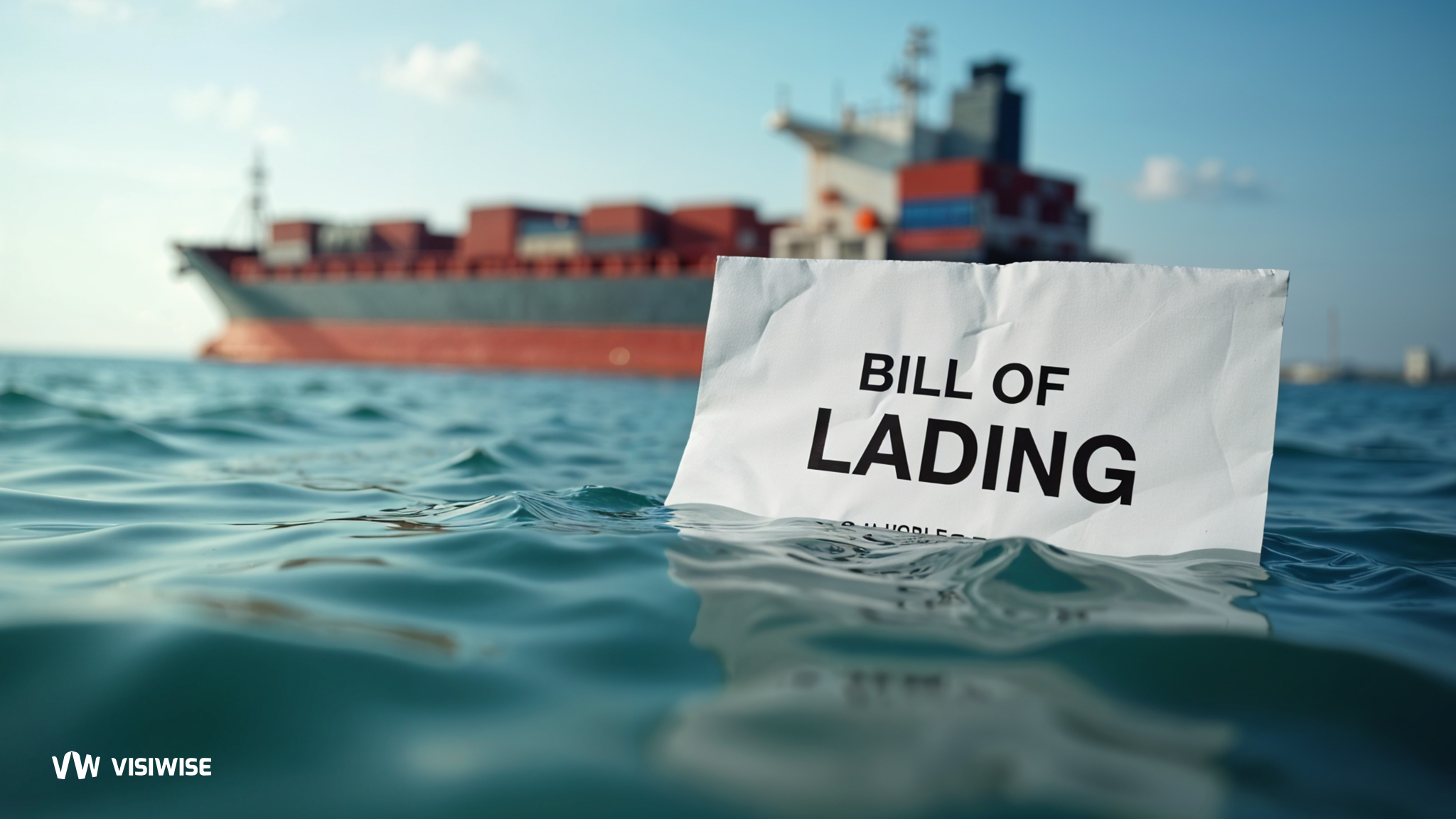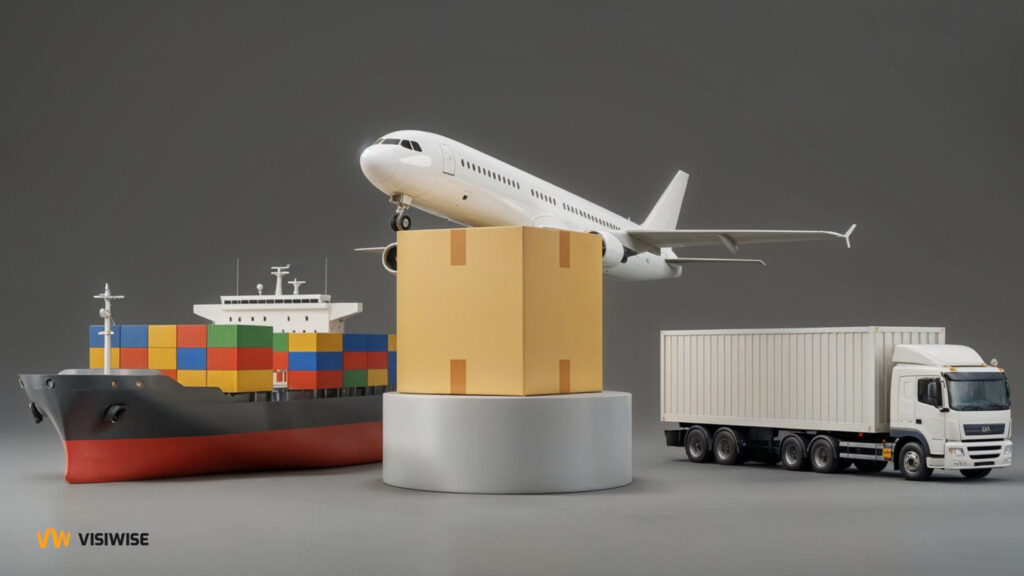A Bill of Lading (BoL) is one of the most important documents in international trade, acting as a receipt of goods, a contract between the shipper and carrier, and a document of title. Losing this document can have serious consequences, particularly for the buyer or seller, depending on the stage of the transaction. Without the original BoL, the release of goods can be delayed or halted, and the process to resolve the issue can be complex.
A Lost Bill of Lading: Responsibilities and Consequences
In the event of a lost Bill of Lading, the responsibility typically falls on the buyer in import transactions and on the seller when exporting. Whoever holds the original BoL has the legal right to claim the goods, and until that document is recovered, neither the buyer nor the seller can claim delivery. Therefore, the original BoL is critical for the lawful release of cargo, and if it is lost, a simple letter of indemnity (LOI) or bank guarantee alone is not sufficient for release.
The release of goods without the original BoL can only occur after extensive documentation and verification processes to prevent fraud. Cargo is often released based on the good faith that the holder of the bill is the rightful recipient. However, releasing the cargo with replacement documents involves significant risk, and shipping lines are usually cautious in proceeding without the original.
What Should a Shipper or Consignee Do If a BoL Becomes Lost, Missing, or Destroyed?
To handle a lost, missing, or destroyed Bill of Lading, follow these steps:
- Prepare Required Documents:
- A statement from the shipper on company letterhead explaining the loss
- Shipper’s Authorization on company letterhead
- Shipper’s LOI on company letterhead
- Consignee’s LOI on company letterhead
- Bank Guarantee on bank letterhead
- Commercial Invoice
- Packing List
- If applicable, a letter from the express mail service detailing the loss
- Notify All Parties: Inform the shipper, consignee, and carrier immediately to address the issue and minimize delays.
- Request a Duplicate or Replacement: Request a duplicate BoL from the NVOCC and provide the necessary documentation to support the claim.
What Happens If the Bill of Lading Is Missing Information?
If the Bill of Lading is missing critical information such as the description of the goods, consignee details, or shipper information, this can lead to complications with customs clearance and delivery. The missing details may result in delays, as customs authorities and carriers may refuse to process the shipment until all necessary information is provided. Amendments can sometimes be made, but corrections often involve legal procedures or issuing a new BoL.
Do I Need the Original Bill of Lading?
Yes, the original Bill of Lading is required to claim the goods, as it represents the legal title to the shipment. Without it, the cargo cannot be lawfully released to the consignee. The original BoL also helps to ensure that the cargo is delivered to the correct party, minimizing the risk of disputes over ownership. This makes it essential in the proper execution of trade agreements between the shipper, consignee, and carrier.
What If the Original Bill of Lading Is Lost in Shipping?
If the original BoL is lost during shipment, the process to replace it involves several steps and extensive documentation. Shippers or parties claiming ownership may request a duplicate BoL from the Non-Vessel Operating Common Carrier (NVOCC). Additional documents typically required include:
- A statement from the shipper on company letterhead detailing the loss
- Shipper’s Authorization on company letterhead
- Shipper’s LOI on company letterhead
- Consignee’s LOI on company letterhead
- Bank Guarantee on bank letterhead
- Commercial Invoice
- Packing List
- If lost via an express mail service, a letter from the courier detailing the loss
These documents help verify the rightful owner and mitigate risks associated with releasing goods without the original BoL.
Indemnity Letter for Lost Bill of Lading
A Letter of Indemnity (LOI) is often required when the BoL is lost. This document serves as a legal assurance to the carrier that they will not be held liable for releasing the goods without the original BoL. An LOI is usually accompanied by a bank guarantee, adding an extra layer of financial protection to the carrier in case of disputes or future claims.
Release of Goods Without Original Bill of Lading
In rare cases, goods may be released without the original Bill of Lading if sufficient documentation and guarantees are provided. This includes the LOI, bank guarantee, and other supporting documents. However, the NVOCC or shipping line takes on significant risk when doing so, and this process is only undertaken with extreme caution. Shipping lines may still refuse to release the goods unless a court order or other legal directive is in place.
Bank Guarantee for Lost Bill of Lading
A bank guarantee is essential when the original Bill of Lading is lost. It ensures that the carrier is financially covered in case of any disputes or claims that may arise from releasing the cargo without the original document. This guarantee provides security to the carrier, ensuring they are not left liable for the potential risks associated with the lost BoL.
Common Questions and Answers
What is a Letter of Indemnity (LOI) and why must an officer sign it?
An LOI is a formal document where the issuing company agrees not to make claims against the carrier for releasing cargo without the original BoL. The officer’s signature is required to validate the authority and commitment of the company.
Why do you require an LOI from both the Shipper and the Consignee?
An LOI from both parties ensures that neither the shipper nor the consignee holds the original BoL and that both agree on the release or reissuance of the BoL. This provides protection against claims from either party.
Why is an LOI alone not sufficient?
An LOI does not guarantee that the company has the financial resources to cover all indemnification obligations. A bank guarantee is also needed to protect against potential financial risks.
Why must we obtain the Shipper’s Authorization if the Shipper provides an LOI?
The Shipper’s Authorization confirms that the shipper does not retain the original BoL and that the underlying sale has been completed, ensuring proper release of cargo.
Why is a bank guarantee required if a bank is not involved in this shipment?
The bank guarantee protects the carrier from liabilities if the cargo is released without the original BoL and another party presents it. It covers potential financial risks and ensures the carrier is protected.
Why does the bank guarantee have to be for a period of at least 24 months?
The 24-month period aligns with the statute of limitations for cargo claims, ensuring the guarantee covers the entire potential liability period.
Conclusion
Handling a lost Bill of Lading requires prompt action and careful documentation. The process involves not only providing the necessary LOIs and bank guarantees but also ensuring thorough verification to prevent fraud. Proper management and communication with all parties involved are essential to resolving the issue efficiently and securing the release of the cargo.



